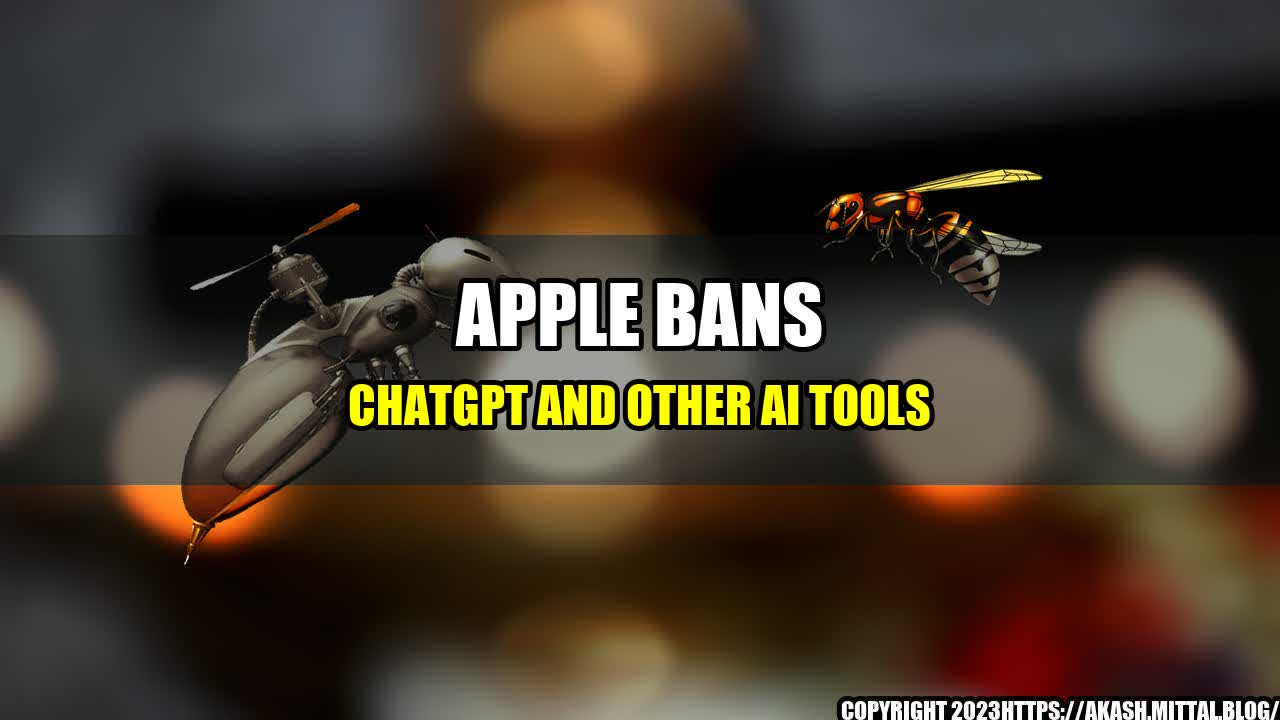The Story: A Cautionary Tale of Leaks
It all started when an Apple employee leaked confidential information about the company's upcoming product launch. The news quickly spread online and Apple's competitors began to copy their designs and features, which resulted in a loss of sales and reputation for the company.
The incident prompted Apple to take action to prevent future leaks. They started by reviewing their security measures and tightening access to confidential information. However, they soon realized that the problem was not just with their internal processes but also with the tools their employees were using.
One of the main concerns was the use of artificial intelligence (AI) tools such as ChatGPT, which could potentially be used to generate confidential information or even mimic the writing style of employees to create fake announcements or leaks.
As a result, Apple decided to ban the use of ChatGPT and other AI tools by their employees, even if they were being used for non-confidential tasks. This decision has sparked a debate about the role of AI in the workplace and the need for tighter security measures.
Quantifiable Examples: The Impact on Productivity and Innovation
The ban on ChatGPT and other AI tools may have a significant impact on productivity and innovation in the workplace. According to a survey by the McKinsey Global Institute, AI has the potential to increase productivity by up to 1.4% per year.
However, the banned AI tools like ChatGPT have already shown great promise in generating accurate and insightful content, which could have a positive impact on marketing and customer engagement. Furthermore, the use of AI in data analysis could lead to better business decisions and increased revenue.
Therefore, the ban on AI tools may have negative consequences for Apple's competitiveness and innovation, as well as for the overall advancement of AI technology in the workplace.
The Future of AI in the Workplace: Balancing Security and Innovation
The ban on ChatGPT and other AI tools by Apple raises important questions about the future of AI in the workplace. While security is a valid concern, it should not come at the expense of innovation and productivity.
Companies need to find a way to balance the benefits of AI with the need for tighter security measures. This could involve developing new AI tools that are more secure and less prone to leaks, or creating guidelines for the responsible use of AI in the workplace.
Ultimately, the success of AI in the workplace will depend on the ability of companies to harness the technology's potential while also mitigating its risks. Apple's ban on AI tools may be a cautionary tale, but it should also be seen as an opportunity to learn and innovate.

Curated by Team Akash.Mittal.Blog
Share on Twitter Share on LinkedIn